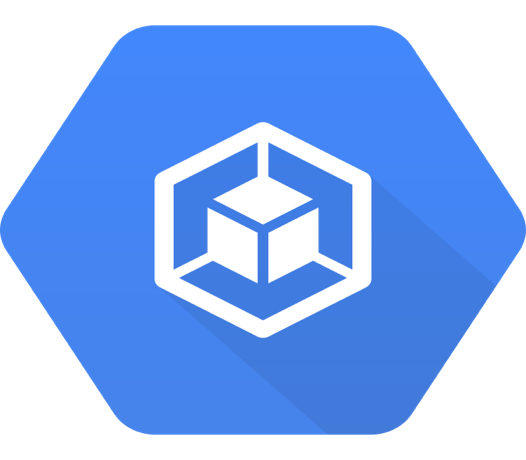Kubernetes is an open-source platform that adds automation to containerization processes.This way you can eliminate most of the operations considered manual when building the online infrastructure, as well as staggering the applications in their containers.

In short, if you want to cluster hosts deployed in containers into clusters, Kubernetes will deliver tools for simpler management, making it easy to orchestrate them. Even though clusters are hosted on different cloud types(public, private, and hybrid), Kubernetes helps host native cloud applications.Controlling complex processes in cloud computing environments can be challenging.
The story of Kubernetes
Originally, the Kubernetes system was born from a Google idea. For more than a decade,Google has been developing and managing container-based applications and cloud-based workloads in production and scale. Kubernetes is the fruit of all the knowledge and experience gained with the first container management systems ofGoogle, Borg, and Omega.
Kubernetes is today an open-source project managed by the Cloud Native ComputingFoundation (CNCF)and the Linux Foundation. This allows the project to benefit from the best ideas and best practices from a large open-source community and avoid the dangers of Vendor Lock-in.
Main functions
â— Deploy applications quickly and predictably in public, private, or hybrid clouds
â— Scaling applications without service interruption
â— Transparent deployment of new features
â— Rational and cost-effective use of IT resources
â— Keeping apps running with auto repair features
Feature of Kubernetes:
â— Automate various manual processes:for example, check which server will host the container, how it will be started, etc.
â— It interacts with multiple groups of containers: it can manage multiple clusters simultaneously
â— Provides additional services: in addition to managing containers, Kubernetes offers networking, storage and security services
â— Self-monitoring:constantly checks the status of nodes and containers (self-monitoring)
â— Horizontal autoscaling: it allows scalability of resources not only vertically but also horizontally, in a simple and immediate way
â— Storage orchestration: mount and add the selected storage system to run the applications
â— Automate rollout and rollback: if something does not work after making changes, it automatically returns to the previous versions
â— Container balancing:always knows where to place the containers, calculating which is the”ideal place”
â— Executable everywhere: it is an open-source tool that gives you the freedom to exploit on-premise infrastructures, public or hybrid clouds, letting you move workloads where very you want.
SourceThe Operation of Kubernetes
Kubernetes is a container orchestrator. We also talk about Containers as a Service. It provides a platform that will automate the deployment, scalability, and implementation of application containers on server clusters.
A container orchestrator manages the services, their control, and distribution over multiple hosts and accesses to the network and physical resources of these hosts.
A container groups an entire runtime environment. It contains the application, configuration files, libraries and dependencies.
A cluster is a group of independent servers and resources that function as a single system.
Kubernetes acts as a true conductor of all this architecture and relies on the following 4 concepts:
Master
A Kubernetes cluster is necessarily based on a master. It is a system that directs and controls all other machines in the cluster.
Knots
Each cluster contains nodes that are either physical or virtual machines. They run”pods” that each contains a single instance of a single application.
Controller
The controller controls the creation, execution, and destruction of pods. The controller manager ensures the system status and its adequacy with the prerequisites.
Scheduler
The scheduler manages the scheduling according to available CPU, RAM or storage as well as affinity rules.
SourceWhat are the challenges of managing this technology?
If your company offers digital solutions, it must have a full-time IT staff to ensure maximum availability. After all, a system crash for a few hours would mean significant revenue losses.
Oneway to reduce risk and cost was to use cloud computing instead of server virtualization methods. However, new challenges emerged, such as the need for tools for resource integration, monitoring, and control. And so, Kubernetese merged.
As you all know, Kubernetes is a container orchestrator, and the solution with which it is normally used is Docker. In fact, Kubernetes comes to solve some of the problems that Docker has.
Advantages of Kubernetes
Among many other advantages that Kubernetes offers us, we highlight some very important ones:
â— Container orchestration on multiple hosts, since it does not use containers as such, but uses container pools, which is known as Pod.
â— Ease of scaling, both logically and physically, that is, we have the possibility of adding new compute nodes to our cluster, increasing the available hardware resources and capabilities.
â— Possibility of scaling the number of containers that are running. For example, we have an Apache Execution Pod, we can expand the number of executions above, that is, if we have three and visualize that the demand is increasing, we can easily scale to a larger number to meet that demand.
â— It allows optimizing resources, defining within the Pods what resources each container will need, such as the hard disk quota or the RAM limit used by the container itself.
â— We can automate deployments, container sanitation, application version upload, and endless other things.
So, because of the advantage’s organizations are more likely to use Kubernetes and it will be the future.
Disadvantages of Kubernetes
With all the advantages of Kubernetes, this container cluster management system has the following disadvantages, which greatly complicate its use in practice:
â— a large number of specific concepts and inter dependent entities (under, service, kubelet, controller, etc.);
â— scanty documentation that does not describe the system in detail;
â— adding an additional level of abstraction increases the complexity and fragility of the system;
â— the lack and high cost of experienced professionals who are fluent in this DevOps technology.
SourceWho will use Kubernetes?
Potentially, all companies that have application development challenges, no matter how small. This can be the CIO of an SME, ETI or a large group as much as the specialized companies SSII, ESN,etc.
Kubernetes is aimed at all CIOs who encounter the following issues:
â— Connect containers between them, between different hosts?
â— Share persistent data volumes between containers, on different hosts?
â— Ensure balancing cluster?
â— What will be the action if a container ended accidentally?
â— How to choose the nodes of the cluster where to deploy this or that container?
â— Limit the consumption of resources of each container?
Why Kubernetes has become very trendy
When containerization technology made its appearance on the computer scene, most of the discussions focused on Docker.Today, while Docker’s open-source technology still represents a very important part of the container ecosystem, Kubernetes is attracting more and more attention.
Why will you use Kubernetes?
Simplicity
Kubernetes allows you to deploy and manage container-based applications simply and efficiently, making the use of this technology available to a much larger number of users.
Automation, Scalability, and Resilience
Platform automation ensures that deployment, resiliency, and scalability of applications can be done simply. The ability to pursue the desired state of execution is a powerful mechanism for keeping an application running as expected.
Portability
Applications using containers can be easily ported between different types of infrastructure promoting provider independence. For example, you can use a laptop to develop and test an application and then deploy it in production to a local data center or public cloud on a much larger scale.
Open-source
It is a platform supported by the major players of the technology industry. The open-source model enables new tools and features to be easily incorporated.
Efficiency
Kubernetes enables the use of large-scale containers, which increases the efficiency of infrastructure use. Some users even report 30-40% cost savings.
The combination of Containers and Kubernetes is revolutionizing the data center and enabling a new IT model that makes us rethink the paradigms of software development. The results show that it is worth the effort and investment.
SourceKubernetes accelerates cloud-native development
Kubernetes is indispensable for container development. In addition, Kubernetes is highly scalable, so the establishment of the surrounding ecosystem will accelerate further in the future.
For example, “Kubeflow” that deploys machine learning infrastructure on Kubernetes,“Knative” that deploys serverless infrastructure, “Istio” that constitutes a service mesh (dedicated layer responsible for “inter-service communication” in distributed systems), Various OSSs have appeared, such as “Vitess”, which develops a Database as a Service platform.
While it has useful functions and features, it also has the problem of high learning costs for engineers, but in the future, cloud-native development using Docker and Kubernetes is likely to accelerate in many companies.
The possibilities of Kubernetes are numerous. Have you thought about starting?
”

